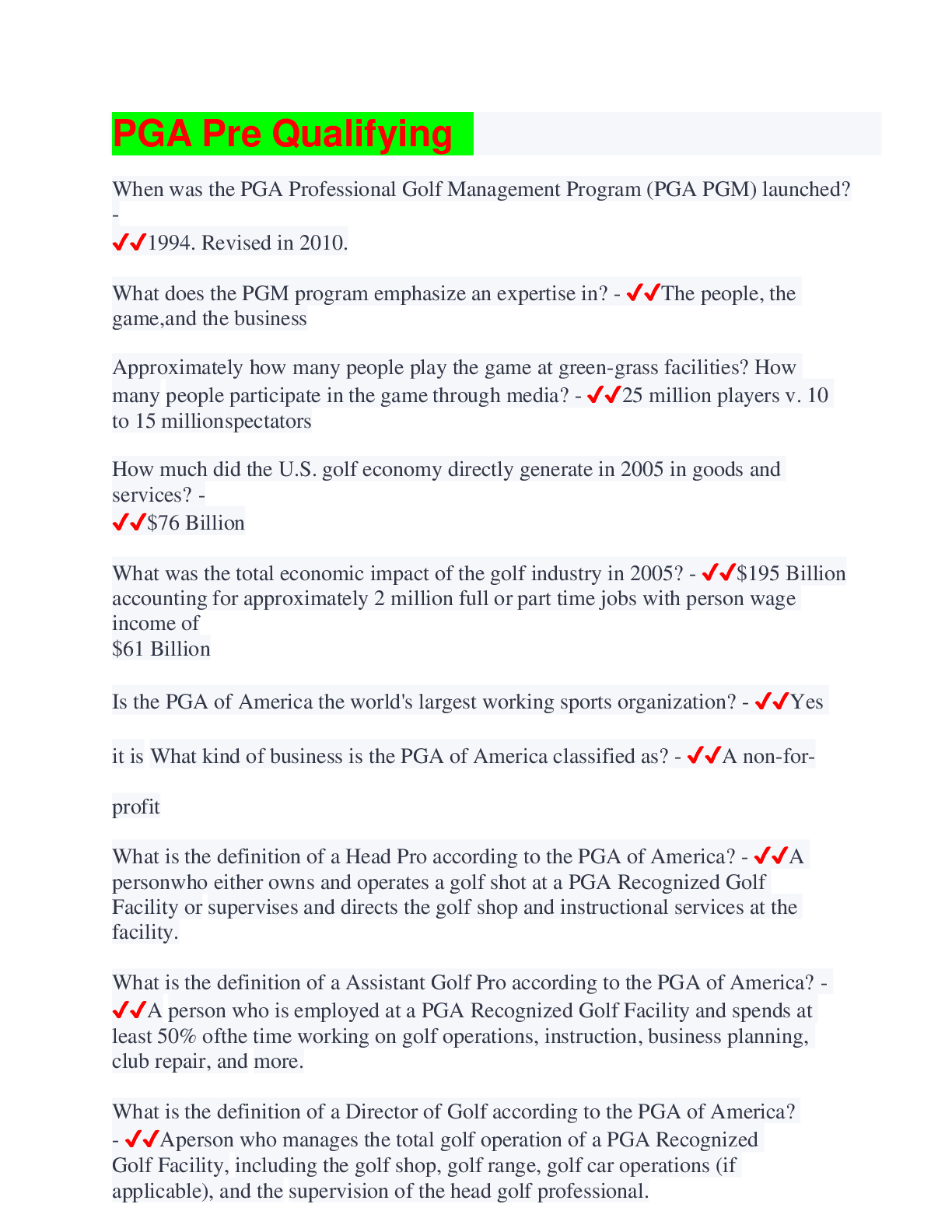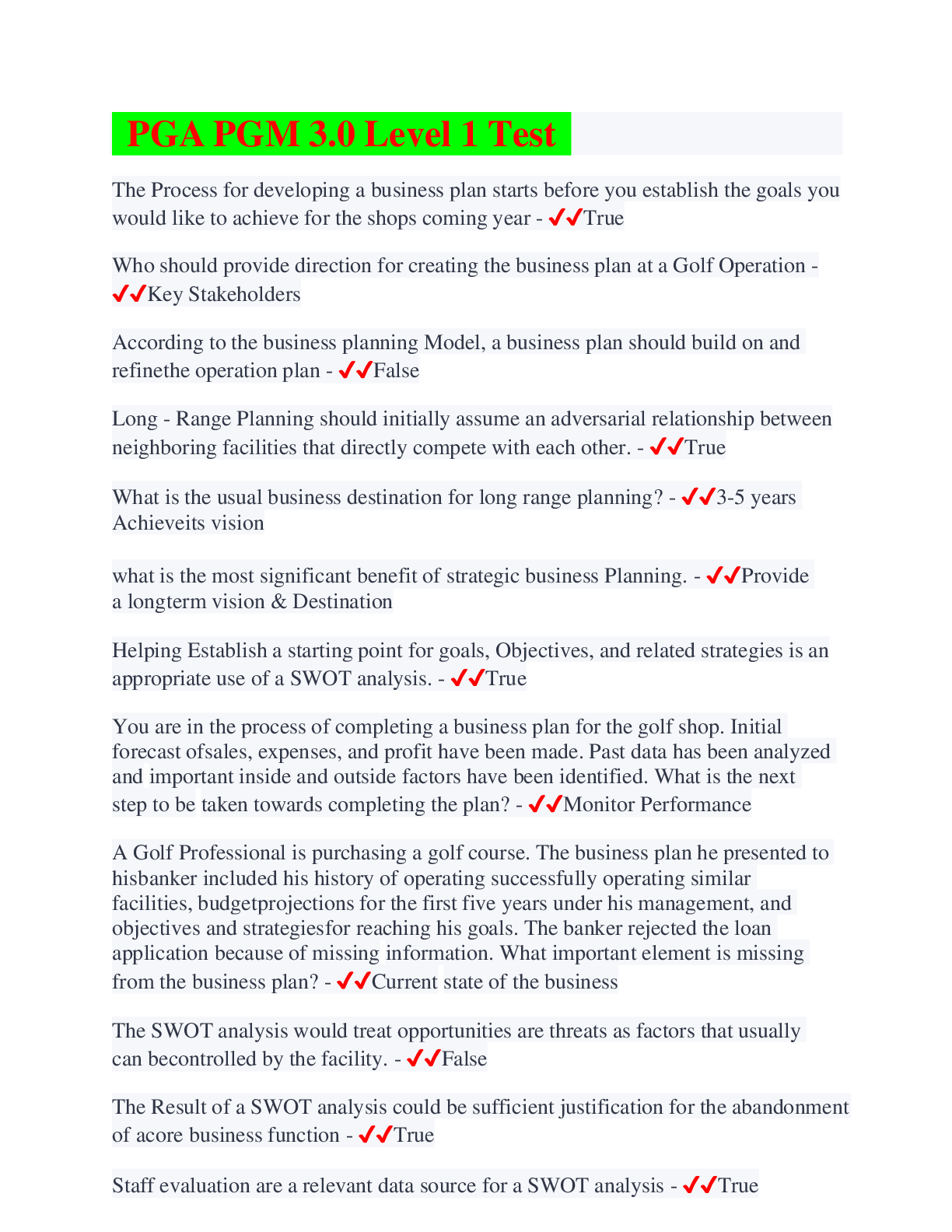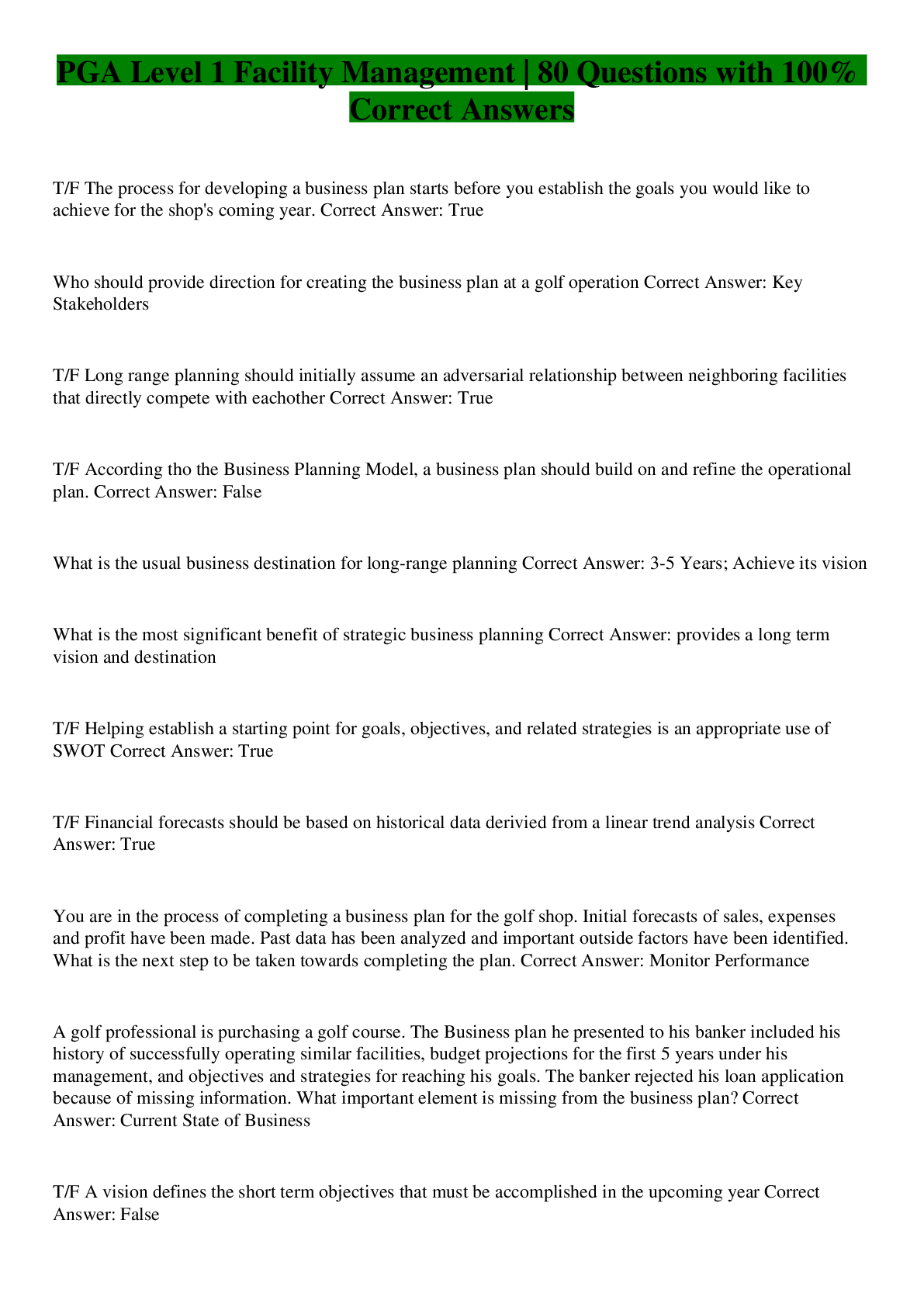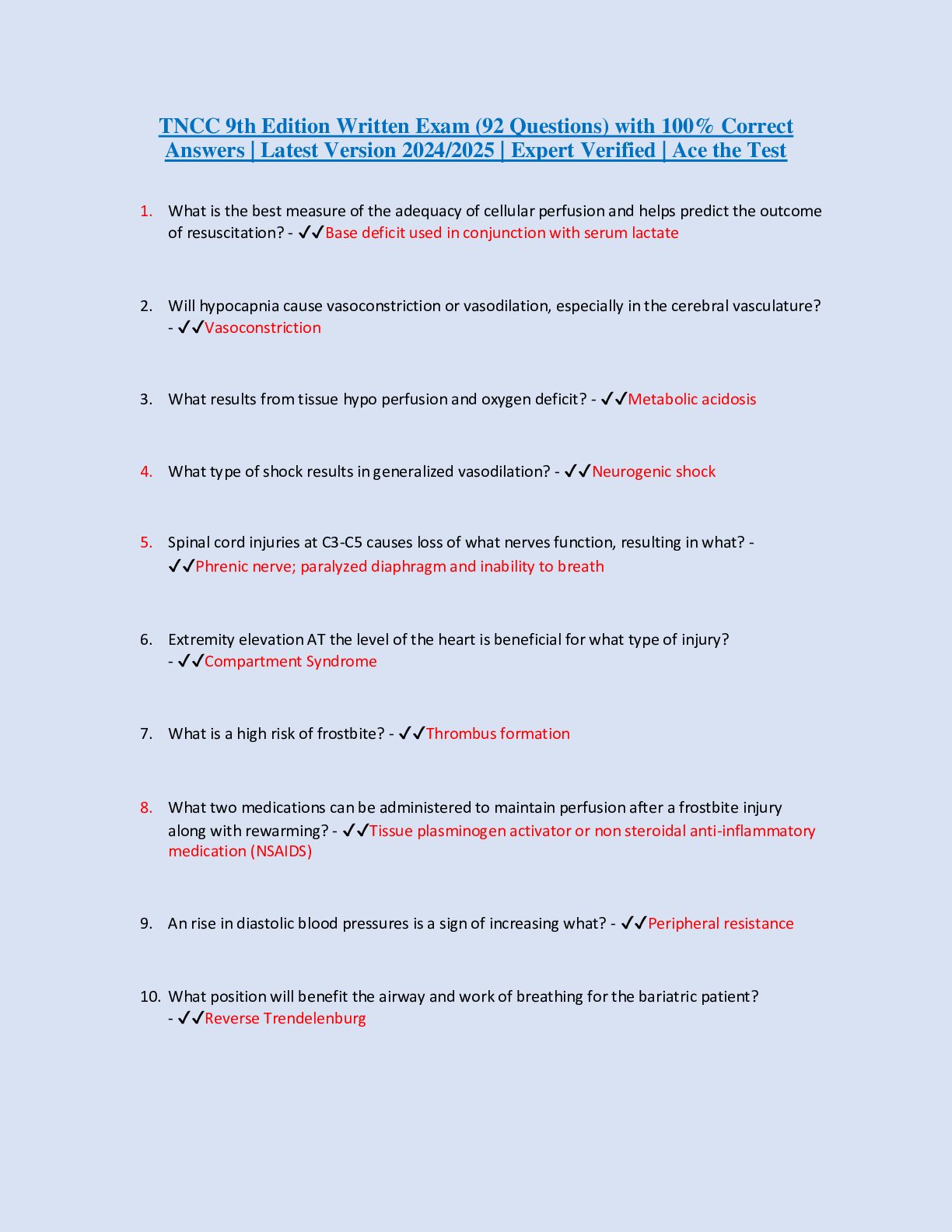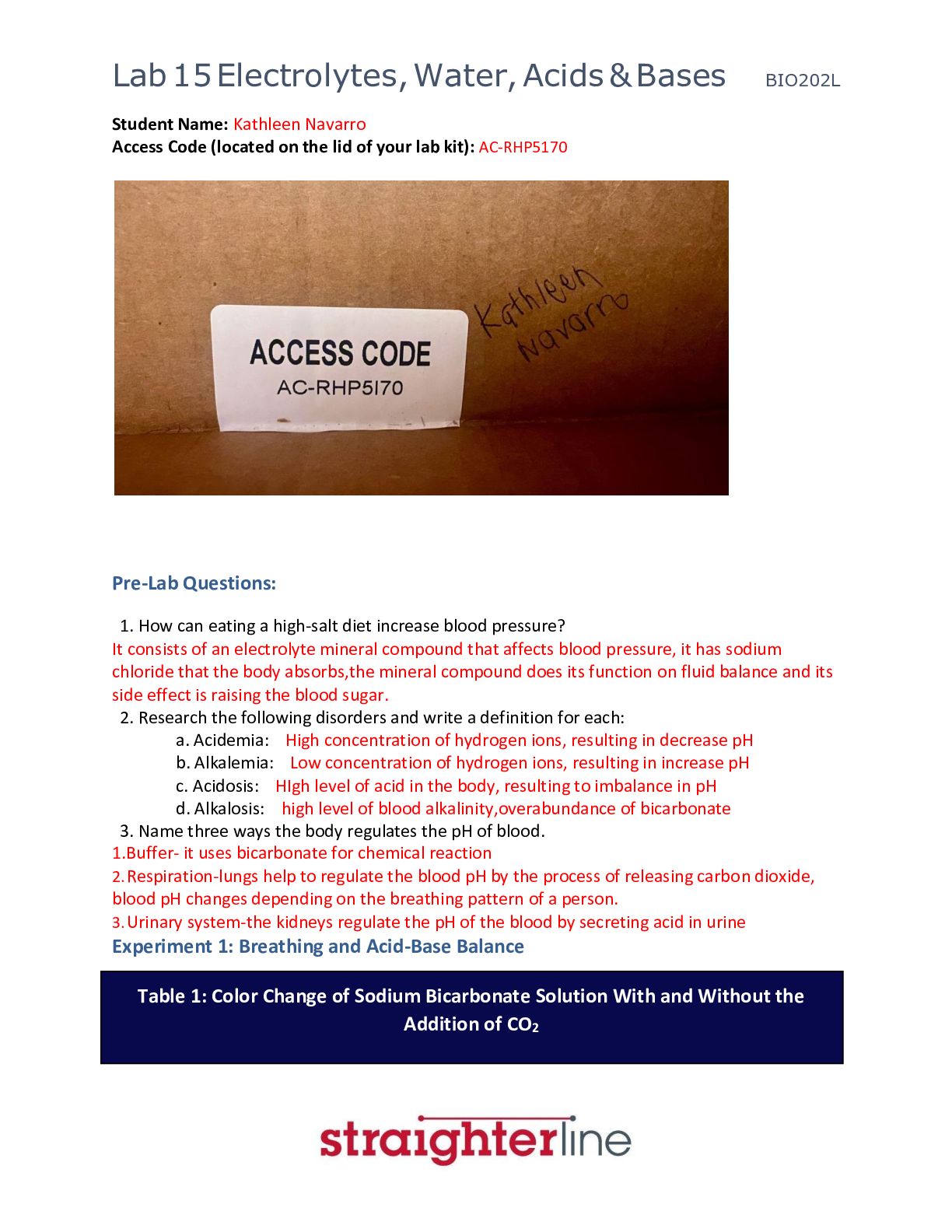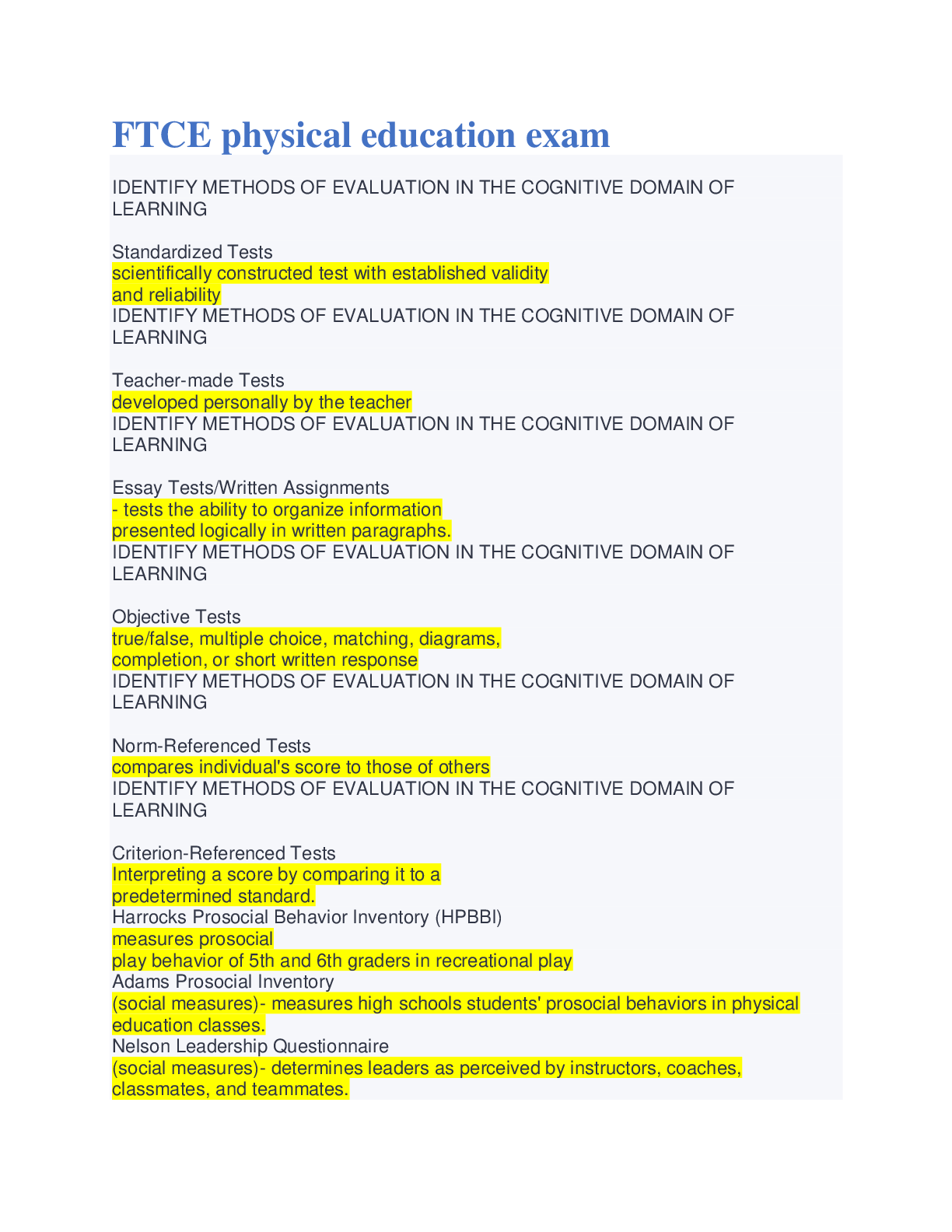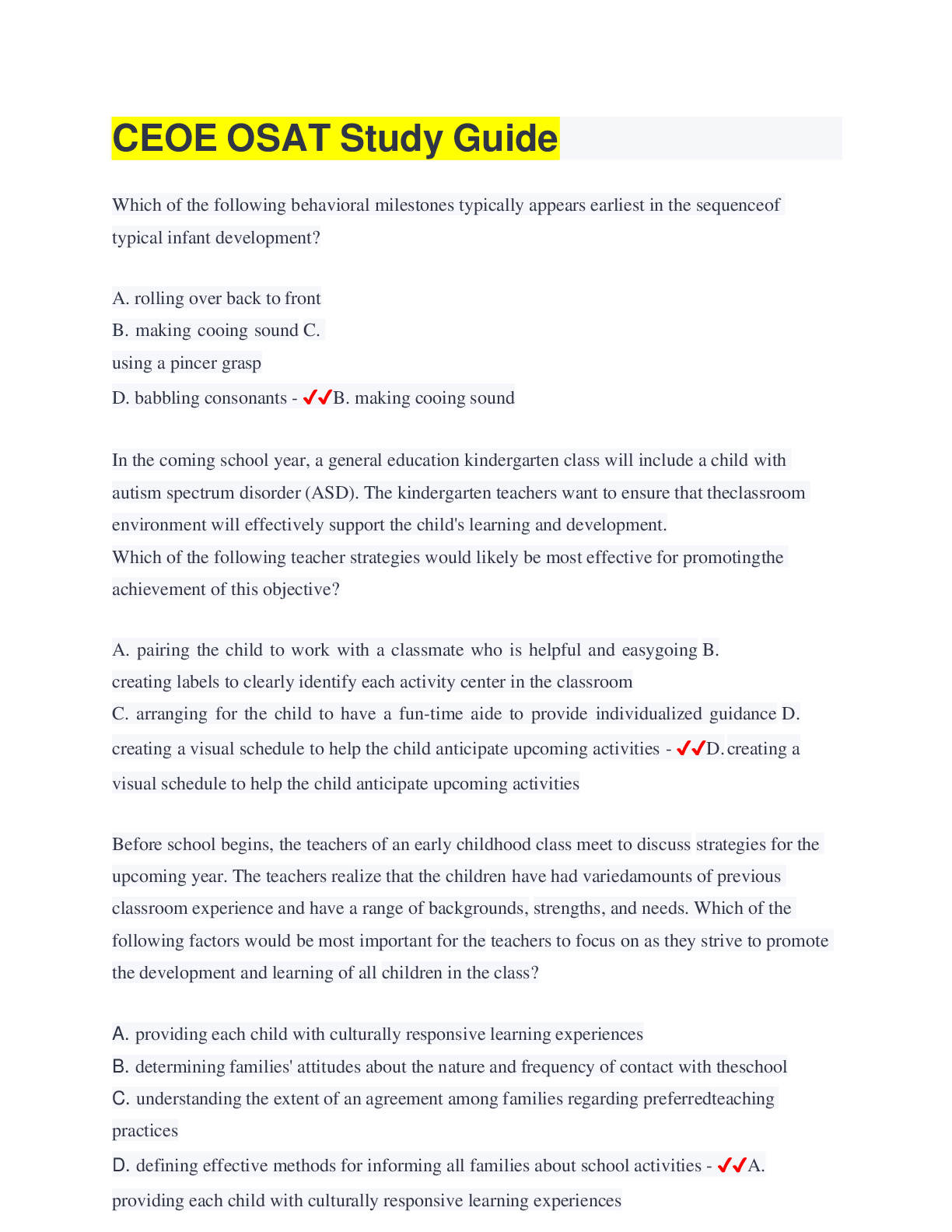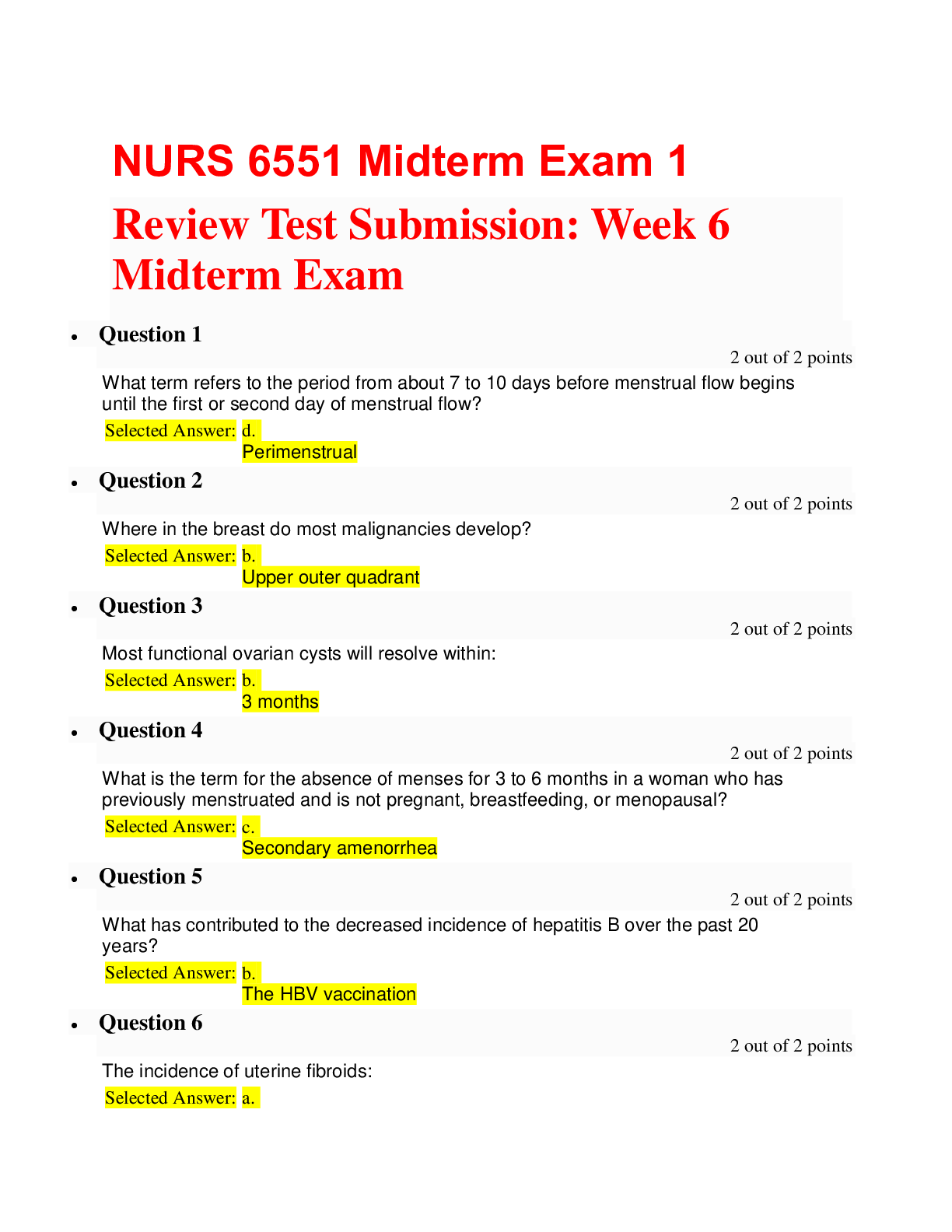NCLEX PRACTICE TEST 2022 (75 Questions with 100% Correct Answers)
Document Content and Description Below
The nurse on a locked psychiatric unit is administering morning medications to a patient with schizophrenia. The patient refuses and says, "I'm not going to take that!" What is the nurse's BEST respon... se? 1. "You have the right to refuse this medication, but the doctor may get a second opinion and have it ordered as an intramuscular injection." 2. "The doctor has ordered it for you so you have to take it." 3. "You do not have the right to refuse this medication because you are on a locked unit." 4. "Why not? This medication will make you feel a lot better." - ✔✔1) "You have the right to refuse this medication, but the doctor may get a second opinion and have it ordered as an intramuscular injection." A 'locked unit' does not mean that patients are forced to take the medications. If they refuse enough, however, their prescribing doctor can get a second opinion from another doctor and the medication is made mandatory if refused by mouth. The nurse is caring for a patient with pneumonia using ________ precautions. - ✔✔A) droplet Pneumonia requires droplet precautions. A patient with a crush injury to her right arm calls the nurse and requests pain medicine, which the nurse administers as ordered. An hour later, the patient is still complaining of intense pain. Which of the following actions does the nurse take next? 1. Tell the patient that she can have more medication in three hours. 2. Tell the patient that this is to be expected with a crush injury. 3. Offer the patient a distraction, such as television or a magazine. 4. Ask the patient to describe the pain in quality and intensity. - ✔✔4) Ask the patient to describe the pain in quality and intensity. Unrelieved pain is a sign of a complication. Crush injuries are prone to compartment syndrome, so this pain must be further assessed with a description. After a female patient has completed six months of multidisciplinary treatment for anorexia nervosa, the nurse evaluates whether the patient has met the goal of balanced nutrition sufficient to meet metabolic demands. Which of the following is the BEST indicator that the goal has been met? 1. The patient eats well-balanced meals without former obsessive behaviors. 2. The patient no longer sees herself as fat or overweight. 3. The patient's ideal body weight has been attained. 4. The patient's menstrual period has returned and is regular. - ✔✔4) The patient's menstrual period has returned and is regular. If a patient is meeting metabolic demands, her body will have enough calories/electrolytes to produce a period. If her body does not have the resources to spare, her period will not return. The nurse performs discharge teaching for a client with a left leg cast who will be using crutches to ambulate. Which of the following statements, if made by the patient to the nurse, would require further teaching? 1. "When going down stairs, I will follow my bad leg with my good leg." 2. "I will remember not to scratch inside the cast." 3. "When going up stairs, I will first lift my bad leg and then my good one." 4. "I will put all of my body weight on the handholds and keep it off my armpits." - ✔✔3) "When going up stairs, I will first lift my bad leg and then my good one." When dealing with crutches and stairs, remember: up with the good, down with the bad. On a psychiatric unit, the preferred milieu environment is BEST described as: 1. Providing an environment that will support the patient in his or her therapeutic needs. 2. Fostering a sense of well-being and independence in the patient. 3. Providing an environment that is safe for the patient to express feelings. 4. Fostering a therapeutic social, cultural, and physical environment. - ✔✔4) Fostering a therapeutic social, cultural, and physical environment. The milieu environment includes the whole spectrum of environments a patient interacts with. This answer has the most correct range. The nurse is discharging a patient who had recurrent kidney stones. Which of the following statements, if made by the patient to the nurse, would be considered correct? Select all that apply: 1."I will eat a low-calcium diet because kidney stones are made of calcium." 2."I am glad to know that eliminating alcohol from my diet will prevent kidney stones." 3."I will eat a high sodium diet." 4."I will make it my goal to drink two to three liters of water per day." 5."If I'm told my kidney stone is smaller than 5mm, it will probably pass on its own." 6."I will restrict my water intake to 1500mL per day." - ✔✔4)"I will make it my goal to drink two to three liters of water per day." 5) "If I'm told my kidney stone is smaller than 5mm, it will probably pass on its own." Patients with a history of kidney stones should eat a low-sodium diet and increase their water. Eliminating alcohol does nothing to prevent kidney stones. A patient comes into the ER with the complaint of inability to void. The nurse performs a bladder scan and receives a result of 2,000 mL. The nurse prepares to catheterize the patient and knows that the most important part of the procedure relies on: [Show More]
Last updated: 2 years ago
Preview 1 out of 33 pages
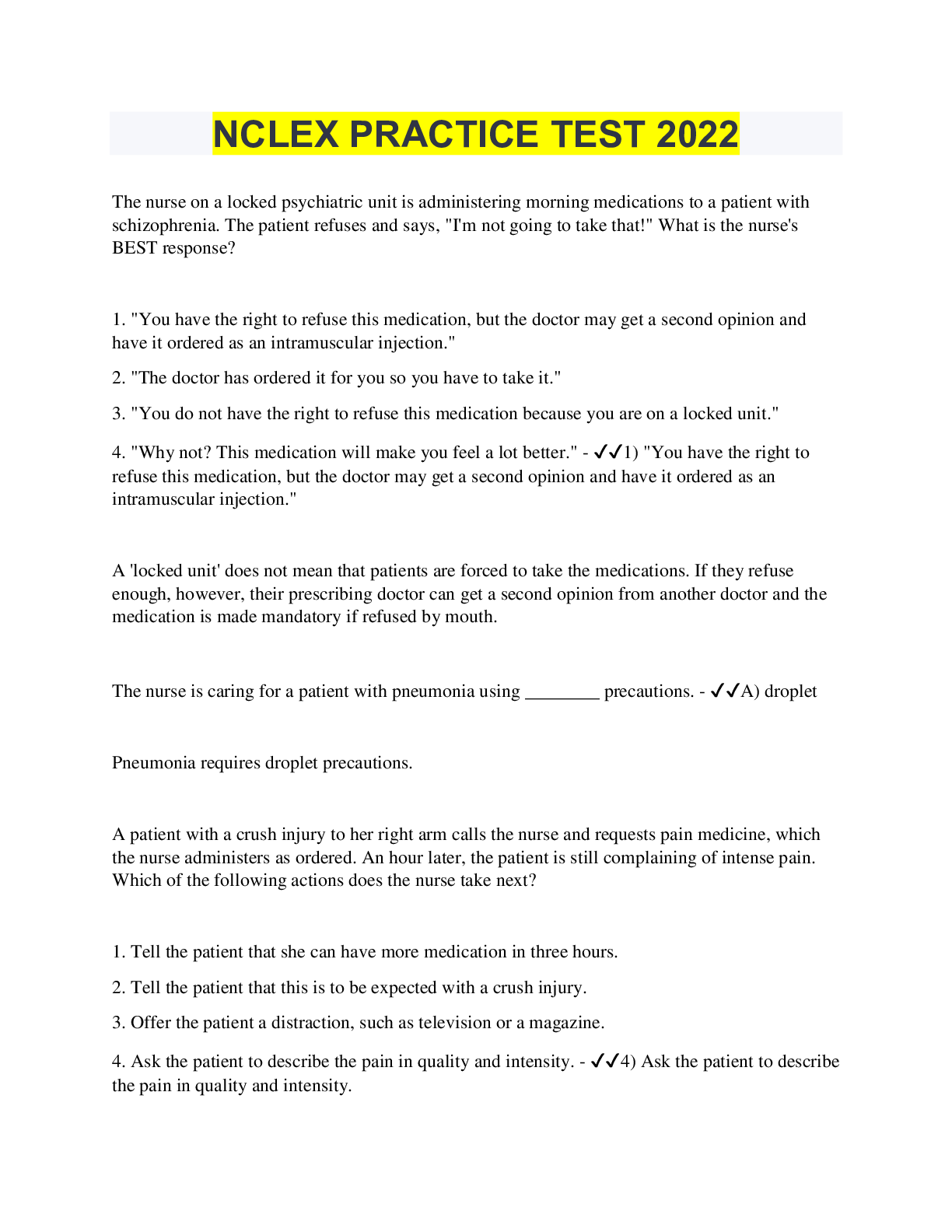
Buy this document to get the full access instantly
Instant Download Access after purchase
Buy NowInstant download
We Accept:

Also available in bundle (1)

Bundle for NCLEX Tests Compilation
Bundle for NCLEX Tests Compilation
By Tessa 2 years ago
$40
27
Reviews( 0 )
$10.00
Can't find what you want? Try our AI powered Search
Document information
Connected school, study & course
About the document
Uploaded On
Jun 01, 2022
Number of pages
33
Written in
Additional information
This document has been written for:
Uploaded
Jun 01, 2022
Downloads
0
Views
118


